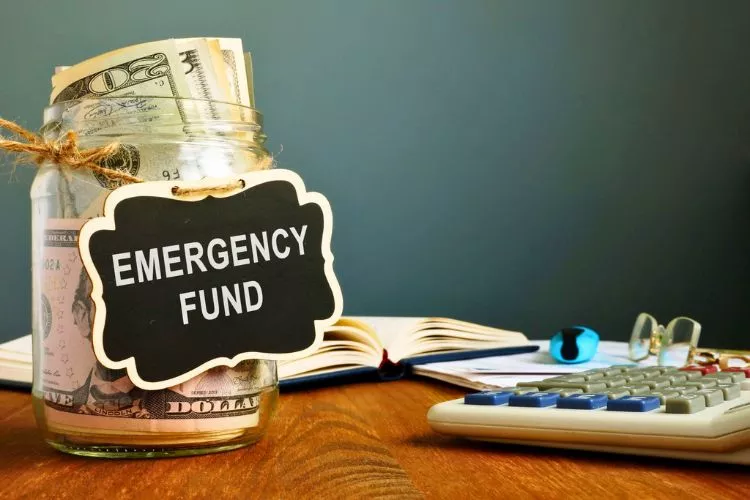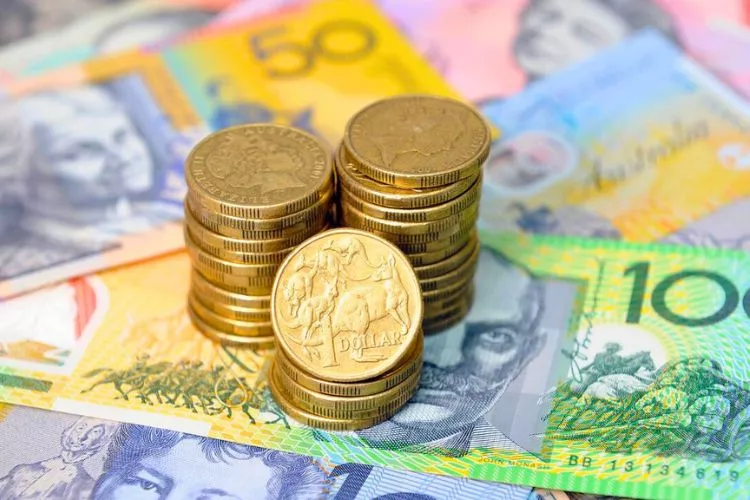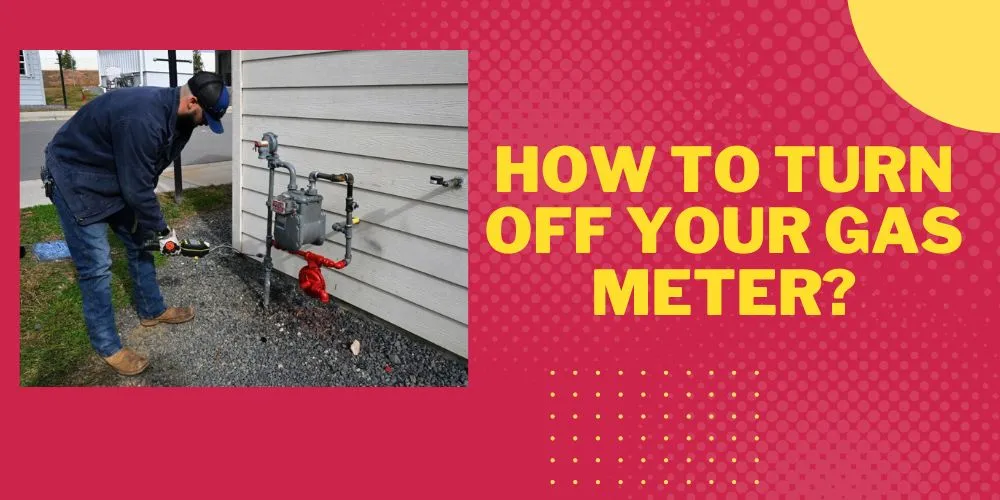In today’s uncertain world, being prepared for emergencies and disasters is becoming increasingly important.
Preppers, individuals who actively prepare for potential disruptions in day-to-day life, understand the value of being ready for unexpected events.
While prepping often focuses on stockpiling food, water, and other essential supplies, one crucial aspect that should not be overlooked is financial preparedness.
Do you know why every prepper should be financially prepared as well?
In this article, we will explore why every prepper should prioritize financial preparedness as an integral part of their overall strategy.

why every prepper should be financially prepared?
Financial preparedness is closely interlinked with overall preparedness. In fact, without a strong financial foundation, other prepping efforts may fall short during emergencies.
Here are several reasons why financial preparedness is crucial for preppers:
Economic Instability and Its Impact on Emergencies
Economic instability can be a trigger for emergencies. A sudden economic downturn or collapse can cause job loss, inflation, shortage of basic supplies, and a disruption of services.
By being financially prepared, preppers can mitigate the impact of economic downturns on their well-being. In times of economic instability, having savings and a diversified investment portfolio can provide a financial buffer.
Preppers who are financially prepared are better positioned to weather the storm and have resources to acquire essential supplies and services when they are most needed.
Correlation between Financial Well-being and Preparedness
Financial stability is often an indicator of overall preparedness. Preppers with a solid financial foundation can afford to invest in necessary prepping supplies, acquire additional skills, and take proactive measures to safeguard their loved ones during emergencies.
In contrast, those who are financially unprepared may struggle to meet basic needs even with an abundance of supplies. Financial preparedness ensures that preppers can sustain their prepping efforts and adapt to evolving emergency situations.
Benefits of a Solid Financial Foundation
Financial preparedness empowers preppers to access essential resources, whether it’s buying crucial supplies, relocating if necessary, or investing in alternative energy sources.
This flexibility can significantly enhance their resilience during emergencies. Having a financial safety net allows preppers to make critical decisions during a crisis without being solely dependent on external aid.
It provides them with the freedom to choose the best course of action for their specific circumstances, giving them a higher chance of successfully navigating emergencies.
Real-life Case Studies
The importance of financial preparedness becomes evident when looking at real-life scenarios. From natural disasters to economic crises, many examples demonstrate how being financially prepared can make a substantial difference in the aftermath of an emergency.
For instance, individuals who had dedicated emergency funds and insurance coverage prior to Hurricane Katrina were able to recover more quickly and efficiently compared to those who lacked such financial preparedness.
They were able to rebuild their lives and communities with greater ease, relying less on external assistance.
Building a Financial Preparedness Plan
To effectively incorporate financial preparedness into prepping strategies, preppers need to develop a comprehensive financial preparedness plan. Here are key steps to consider:

Assessing Current Financial Situation
Preppers should evaluate their current financial status, including income, expenses, debts, and savings. This assessment helps identify the areas that need improvement and informs the financial preparedness goals.
Understanding personal financial strengths and weaknesses is crucial for developing effective strategies to address any potential gaps in financial preparedness. By conducting a thorough evaluation, preppers can create a more accurate and tailored plan.
Setting Financial Goals for Prepping
Determine specific financial goals aligned with prepping objectives. This may involve saving a certain amount for emergencies, paying off high-interest debts, or investing in resilient assets like precious metals or property.
Setting clear financial goals provides preppers with a sense of direction and purpose. It helps prioritize financial actions, maintain focus, and measure progress towards achieving financial preparedness.
Creating a Budget for Prepping Expenses
Developing a budget that accommodates prepping expenses is crucial. Allocate funds for acquiring emergency supplies, training courses, insurance premiums, and other critical prepping-related costs.
A well-structured budget ensures that preppers allocate appropriate resources to their financial preparedness efforts.
It enables them to track their spending, identify areas for potential savings, and allocate funds towards the most essential prepping items.
Saving and Investing Strategies
Preppers should explore various saving and investing strategies to enhance their financial preparedness. Consider establishing an emergency fund, diversifying investments, and researching prepping-specific financial products.
Establishing an emergency fund is one of the fundamental pillars of financial preparedness. This fund acts as a financial safety net during emergencies, allowing preppers to cover essential expenses and unexpected costs without going into debt.
In addition, diversifying investments protects preppers from risks associated with putting all their financial resources into one asset or market. It helps spread risk and ensures that their financial security is not solely dependent on one investment vehicle.
Diversifying Income Streams
Relying on a single income source can be risky during times of crisis. Preppers can increase their financial resilience by diversifying income streams. Exploring side hustles, freelance work, or passive income sources can provide additional financial stability.
Having multiple streams of income can significantly reduce vulnerability during emergencies. It provides preppers with alternative sources of funds and lessens the impact of job loss or income reduction.
Key Financial Considerations for Preppers
In addition to building a solid financial preparedness plan, preppers should address specific financial considerations to ensure comprehensive preparedness. Here are some key factors to bear in mind:

Emergency Funds
Emergency funds are essential for preppers as they provide a financial safety net. Aim to save at least three to six months’ worth of living expenses. These funds can cover immediate needs during emergencies, including food, shelter, and medical expenses.
However, it is important to adjust the emergency fund size based on individual circumstances and potential risks. Preppers may choose to save more to cover specific needs during disasters or periods of prolonged economic instability.
Insurance Coverage
Choosing the right insurance policies plays a vital role in financial preparedness. Evaluate your current coverage and consider policies that protect against potential risks such as flood, fire, or the loss of valuable possessions.
Insurance coverage ensures that preppers are adequately protected and provides financial assistance in the event of a covered loss.
Reviewing and updating insurance policies regularly is essential to align coverage with changing needs and potential risks
Debt Management
Debt can be a significant burden during emergencies. Prioritize paying off high-interest debts to reduce financial stress and free up resources for prepping purposes.
Develop a debt repayment plan and consider seeking professional advice when necessary. Paying off debts not only reduces financial strain but also provides preppers with greater financial flexibility during emergencies.
It frees up funds that can be redirected towards enhancing prepping efforts or building a stronger financial safety net.
Bartering and Alternative Currencies
Preppers understand the importance of diversifying their financial assets beyond traditional money systems. Explore the concept of bartering and consider alternative currencies like cryptocurrencies, which can provide additional flexibility and value during crises.
Bartering allows preppers to exchange goods and services directly, bypassing traditional financial systems. It enables them to obtain necessary items when traditional currency may not be readily available or lose its value during emergencies.
Cryptocurrencies, with their decentralized and secure nature, can provide an alternative means of transferring value and conducting transactions. They can offer preppers more flexibility in preserving financial resources and maintaining economic stability during challenging times.
Pro Tips for Financial Preparedness
To enhance financial preparedness efforts, here are some valuable tips:

Prioritize paying off high-interest debts: Reducing debts minimizes financial burdens during emergencies.
By paying off high-interest debts, preppers can reduce financial stress and free up resources for prepping purposes. It enables them to redirect funds towards building a stronger financial safety net and enhancing overall preparedness.
Learn essential financial skills: Develop budgeting, saving, and investing skills to effectively manage your finances. Developing essential financial skills empowers preppers to make informed decisions, track their spending, and identify areas for potential savings. It ensures that financial resources are allocated efficiently and effectively to achieve financial preparedness goals.
Keep an inventory of valuable assets: Create a detailed inventory of valuable possessions for insurance purposes.
Having an inventory of valuable assets is vital in documenting ownership and submitting insurance claims. It helps preppers maximize insurance coverage and expedite the claims process in the event of loss or damage to valuable possessions.
Regularly review and update your financial preparedness plan: Circumstances change, so regularly reassess and adjust your plan to align with evolving needs and goals. Regularly reviewing and updating the financial preparedness plan ensures that preppers remain aligned with their objectives and are prepared for potential changes in personal circumstances or new emerging risks. It enables them to stay proactive and adapt to evolving situations effectively.
frequently asked question (FAQs)
What are the essential financial documents every prepper should have ready?
Preppers should have copies of important financial documents, including identification cards, insurance policies, property deeds, wills, and stock certificates, in a secure and easily accessible location.
Having these documents readily available ensures quick and efficient access to vital financial information during emergencies. It also simplifies the process of filing insurance claims, accessing funds, or making important financial decisions.
How much money should I save for emergencies as a prepper?
The amount of money to save for emergencies varies based on personal circumstances and goals. Experts generally recommend saving three to six months’ worth of living expenses, but preppers may choose to save more to cover specific needs during disasters or periods of economic instability.
Ultimately, the size of the emergency fund should be determined by factors such as household size, income stability, potential risks, and desired level of financial security during emergencies.
Can preppers use cryptocurrency for financial preparedness?
Cryptocurrencies can offer additional benefits for preppers, such as decentralized transactions and potential value stability. However, it is important to thoroughly understand the risks and seek expert guidance before investing in cryptocurrencies.
Cryptocurrencies can provide preppers with an alternative means of preserving and transferring value during emergencies. They may offer more significant resilience against traditional financial systems’ vulnerabilities, but potential risks and fluctuations in value must be carefully considered.
What are the potential financial risks during an emergency?
Emergencies can lead to various financial risks, including job loss, devaluation of currency, scarcity of supplies, or damage to property. Being financially prepared helps mitigate such risks and provides a safety net during uncertain times.
By building a solid financial preparedness plan, preppers can proactively address potential financial risks and ensure they have the means to navigate emergencies with greater ease and security.
Conclusion:
Financial preparedness is an essential component of any prepper’s strategy. By recognizing the importance of financial stability and implementing comprehensive financial plans, preppers can enhance their overall resilience during emergencies.
Establishing emergency funds, managing debts, and diversifying income streams are all critical steps toward achieving financial preparedness.
Remember, being financially prepared not only provides immediate benefits during crises but also fosters long-term peace of mind in an uncertain world.


